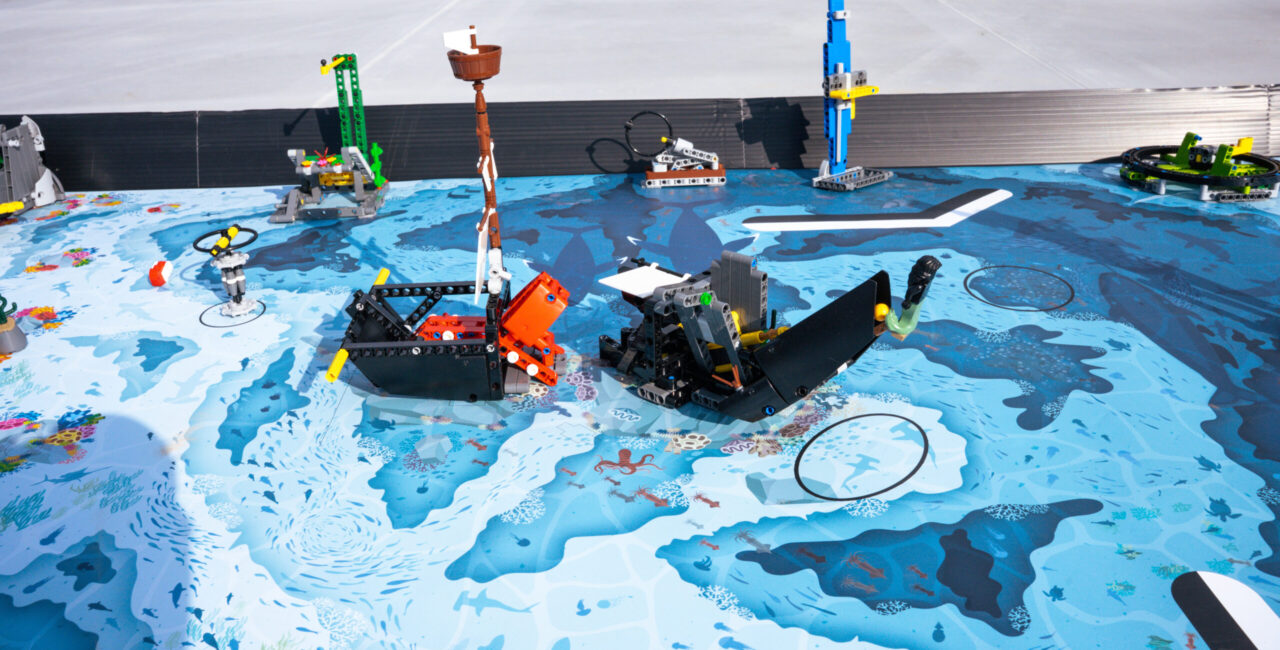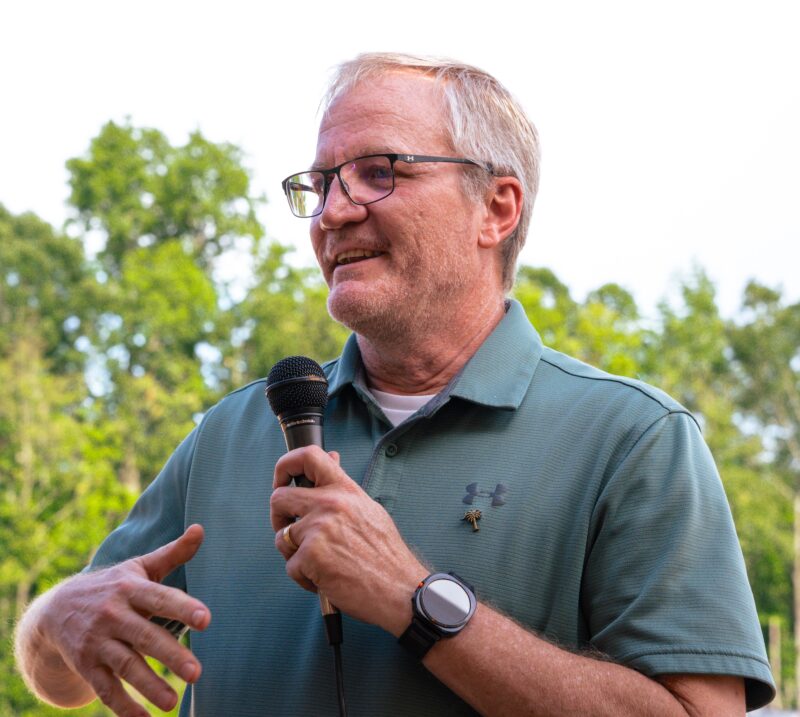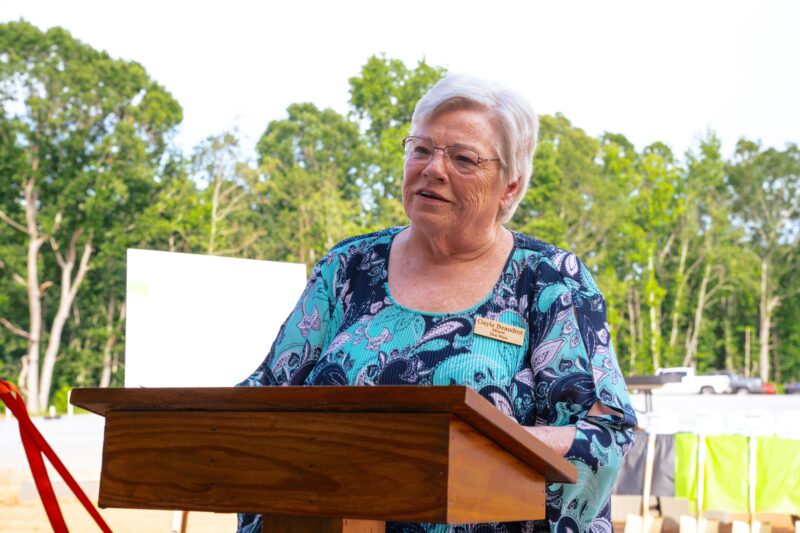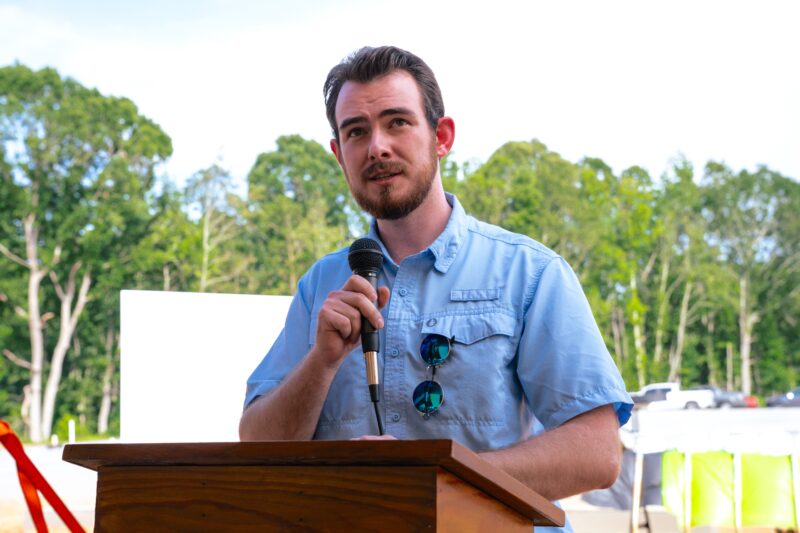
Alumni participate in ceremony for Palmetto Innovation & Technology Center project

Due West Robotics, founded in 2012 by Charles Angel, began a new chapter in its success story June 27 by breaking ground for the Palmetto Innovation & Technology Center, a 16,500-square-foot building in Due West which will be the first facility in South Carolina dedicated solely to robotics and STEM education.
Starting with just four students, the membership of Due West Robotics has now grown to more than 70. In the early days of the robotics group, both Erskine College and the Town of Due West stepped up to provide meeting and event space.
“Erskine has always been interested in Due West Robotics, and we are pleased that we could provide facilities for the club as the program became firmly established and began to flourish,” says Vice President for Advancement and Alumni Relations Paul Bell ’84.
“We’ve had the pleasure of watching some of the original members move through the ranks of the program and on into college and careers. We’re even more pleased that the club has outgrown us and is getting its own state-of-the-art facility. It’s a marker of tremendous success on their part. We anticipate new levels of partnerships in the years ahead, and Erskine will always be among Due West Robotics’ greatest fans.”

“We are incredibly grateful to the town of Due West and Erskine College for generously providing us with workspace over the years,” says Sara King Wojtkowski ’05, an Abbeville County educator who serves as executive director of Due West Robotics.
Due West Robotics students are drawn from Abbeville, Anderson, and Greenwood counties. “Our programs support students from 1st through 12th grade, offering opportunities for hands-on STEM learning and robotics competition at every level,” Wojtkowski says. “We are thrilled to be moving into a larger, dedicated space that will allow us to continue growing and serving even more students across the region.”
“It’s a great day for Due West,” said Mayor Gayle Beaudrot ’05 (Sem.), one of several Erskine alumni who participated in the ceremony. “This place where we stand this afternoon could change the lives of so many, many people.”
“The biggest thing I’ll take away from robotics is problem solving,” said John Paul Bell ’24, a member of the original Due West Robotics team who spoke at the event. “You learn how to think critically.” Bell completed a double major in chemistry and mathematics summa cum laude and is now studying theoretical chemistry at Clemson University.
Matt Weyer, son of former Erskine staff member Adam Weyer ’99 and Ashley Aldridge Weyer ’97, grew up in Due West and was also part of the original team. He said robotics teaches teamwork, leadership, creative thinking, public speaking, and confidence. Praising the work of Charles Angel in establishing and leading the Due West organization, he observed, “We all say this started with four kids, but that’s not true—it started with one man.”
In his remarks at the ceremony, state Sen. Mike Gambrell addressed Angel, saying the Palmetto Innovation and Technology Center project “is a testament to what you’ve done and what you’ve meant to this community.”

Angel considers himself “blessed” to have the robotics students in his life. Noting that a number of generous people are either donating or accepting reduced compensation for their work on the building project, he said of Due West Robotics, “It’s all about this community that has supported it from the beginning.”
Funding has been secured for phases 1 and 2 of the Palmetto Innovation and Technology Center, with completion planned for early 2026.
Pictured at top is a robotics display featured at the groundbreaking ceremony.
See more photos here.
